
The Bhagavad-gita’s first chapter contains the words of primarily two characters: Duryodhana (01.03-11) and Arjuna (01.21-23; 01.28-45). Why does the Gita include Duryodhana’s speech, when there is no later reference to those words? Possibly to depict his illusion and to contrast it with Arjuna’s subsequent illusion, thereby illustrating why some illusions persist and why others are overcome.
Duryodhana’s words: He approaches Drona and compares his forces with those of the Pandavas. During his assessment, he fails to mention Krishna, though Krishna is present prominently on the chariot of Arjuna, whom Duryodhana mentions right in the beginning of his assessment (01.04). His words expose his illusion: his negligence of Krishna’s supreme position and prowess.
Arjuna’s words: Arjuna expresses his reservations about fighting against his relatives. Though Arjuna has Krishna next to him, he turns away from Krishna to behold the opposite army (01.21-23). When he prefers his own observation over Krishna’s guidance, he soon finds himself consumed by illusion and loses his will to do his duty (01.46).
From an external perspective, Arjuna’s illusion is far more overwhelming than Duryodhana’s. The latter doesn’t break down into tears or cast aside his weapons, as does Arjuna (01.46). Yet internally, Duryodhana’s illusion is far deeper because of his long-held inner disregard for Krishna’s position. Earlier, he had rudely rejected Krishna’s peace proposal, brazenly tried to arrest Krishna and nonchalantly downplayed Krishna’s display of the universal form. His defiant illusion sealed his pact with death — and the Kurukshetra war became the unfolding of the self-induced tragedy of his destruction.
In contrast, Arjuna’s illusion is only circumstantial — because he is internally anchored in his devotion to Krishna, he soon turns toward Krishna for guidance (02.07), thereby gaining the Gita’s wisdom and finding his way out of illusion (18.73).
One-sentence summary:
Arjuna comes out of illusion because he is devoted to Krishna and turns to him for guidance, whereas Duryodhana, having no devotion for Krishna, never turns to him and stays lifelong in illusion.
Think it over:
- How do Duryodhana’s words reveal his illusion?
- How does Arjuna get illusioned?
- Why does Arjuna come out of illusion, but Duryodhana doesn’t?
***
01.46: Sanjaya said: Arjuna, having thus spoken on the battlefield, cast aside his bow and arrows and sat down on the chariot, his mind overwhelmed with grief.
To know more about this verse, please click on the image

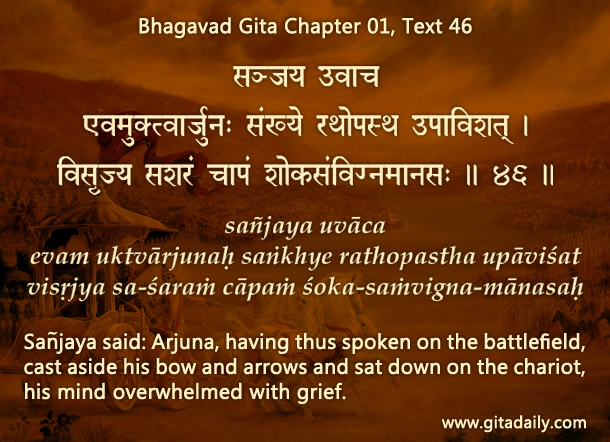

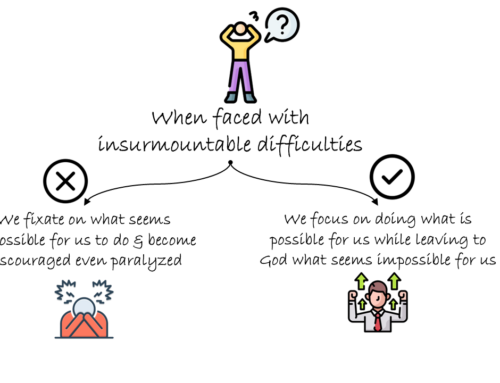

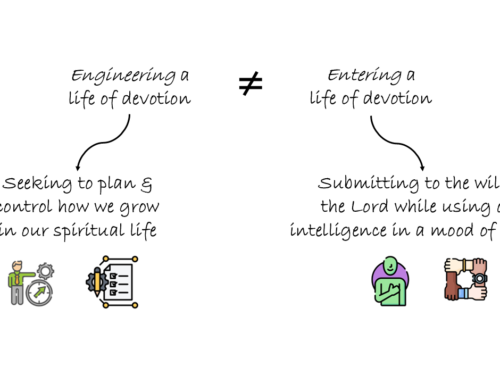

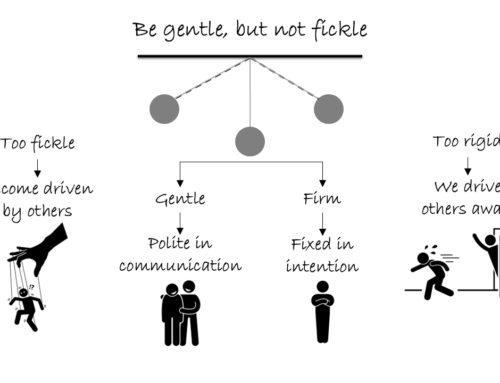
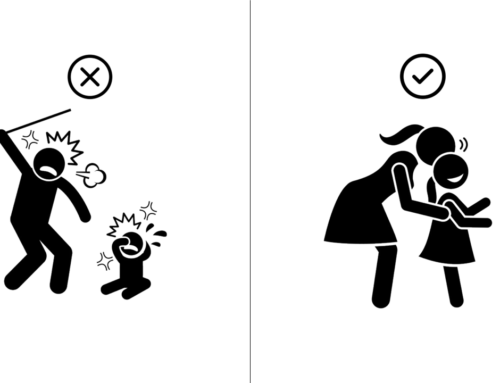
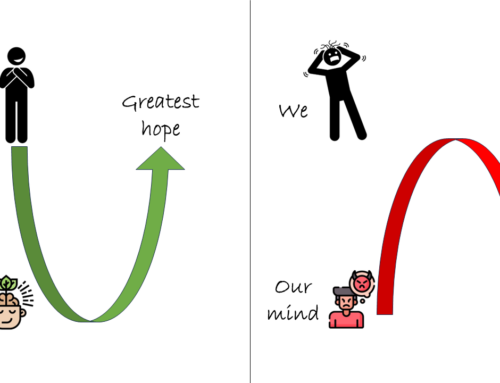

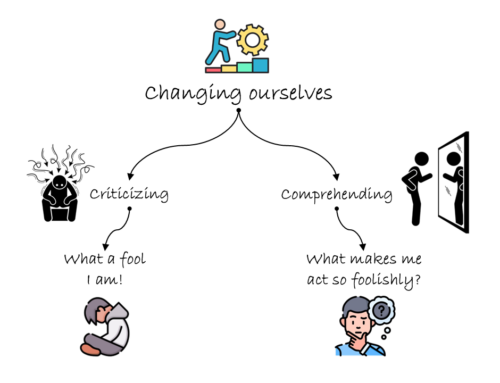
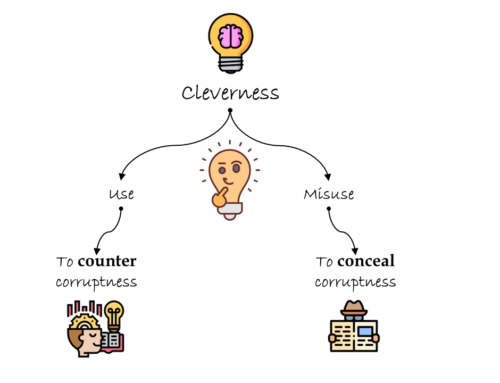

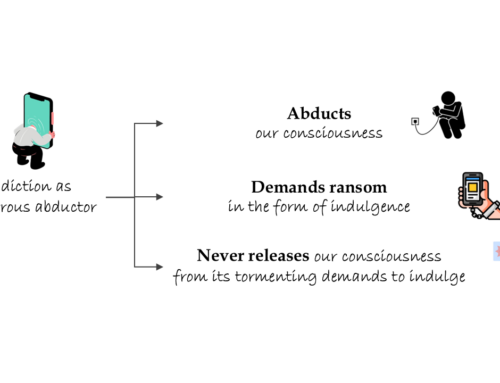
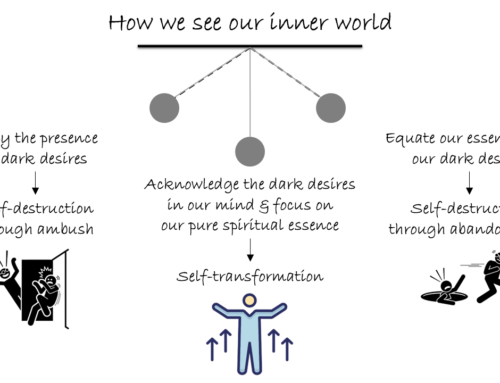
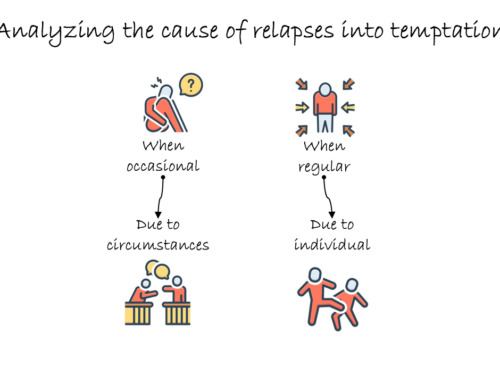

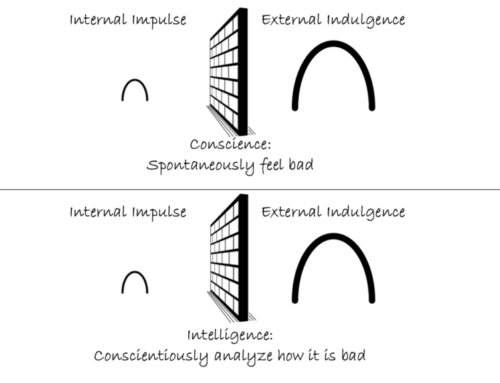
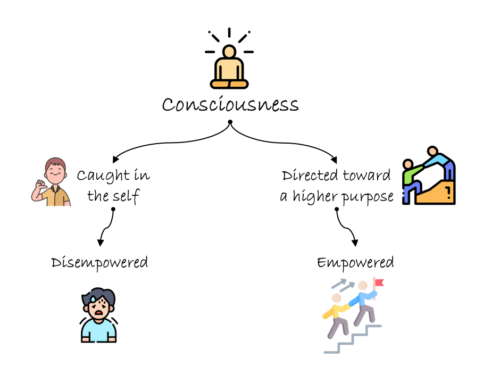
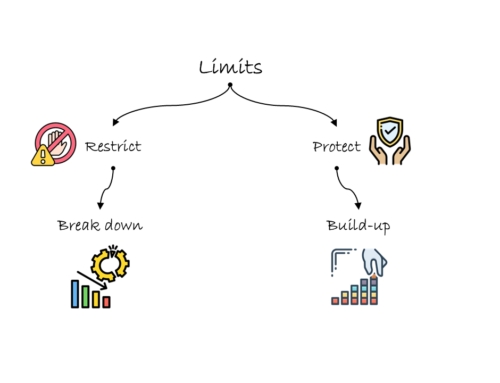
Everyone has eyesight but a few has a vision
Well-said!